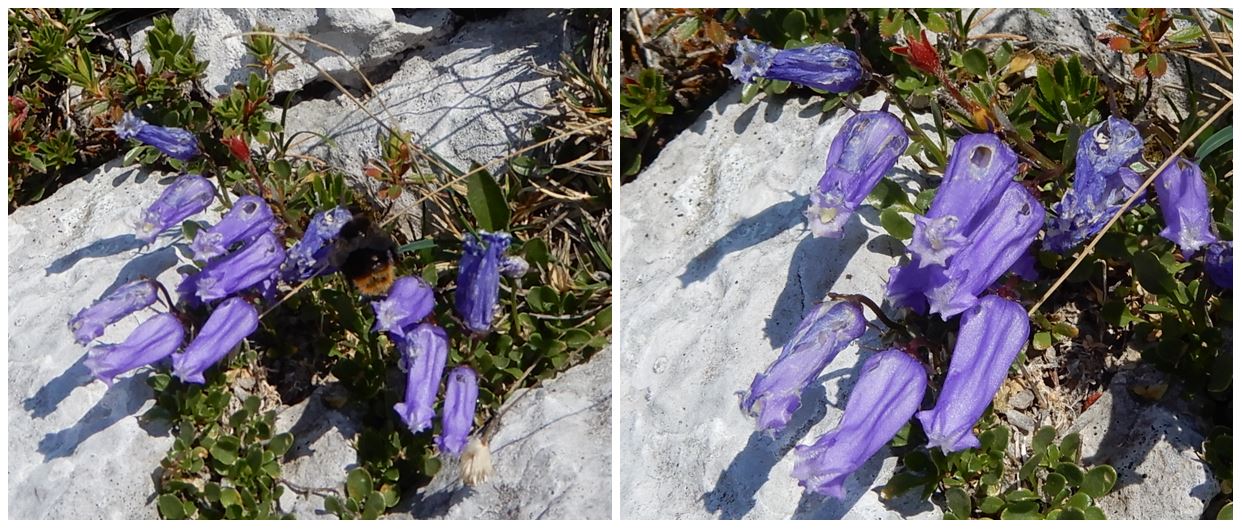Šuspa's remark on nectar robbers
 The resource provided as a reward in mutualistic relationships (in the case of flowers nectar as a reward for pollination) can be obtained as expected in mutualism, i.e. as a reward for the service (pollination), or in other ways, without providing the expected service. Typically, the nectar robbers are able to ‘steal’ the nectar, without providing the pollination service. Long narrow corolla is typically the way, in which the plants ‘force’ insects to crawl through to get nectar at the corolla bottom. At the picture, it is Campanula zoysii (in Julian Alps). Unlike other Campanula species, which have open corolla, C. zoysii has a very narrow 'mouth'. This undoubtedly increases the pollen transfer, on the other hand, it restricts the possible number of species that are able to crawl through. These are, however, specialized and thus increase the probability of pollen deposition to the conspecific flowers. On the contrary, species that are not able to crawl through solve acquisition of nectar in a different way – they simply chew a hole in the bottom of corolla. On the picture (left) a bumblebee Bombus wurflenii chewing through the corolla bottom, on the right the holes in the corolla. Photos by Šuspa
The resource provided as a reward in mutualistic relationships (in the case of flowers nectar as a reward for pollination) can be obtained as expected in mutualism, i.e. as a reward for the service (pollination), or in other ways, without providing the expected service. Typically, the nectar robbers are able to ‘steal’ the nectar, without providing the pollination service. Long narrow corolla is typically the way, in which the plants ‘force’ insects to crawl through to get nectar at the corolla bottom. At the picture, it is Campanula zoysii (in Julian Alps). Unlike other Campanula species, which have open corolla, C. zoysii has a very narrow 'mouth'. This undoubtedly increases the pollen transfer, on the other hand, it restricts the possible number of species that are able to crawl through. These are, however, specialized and thus increase the probability of pollen deposition to the conspecific flowers. On the contrary, species that are not able to crawl through solve acquisition of nectar in a different way – they simply chew a hole in the bottom of corolla. On the picture (left) a bumblebee Bombus wurflenii chewing through the corolla bottom, on the right the holes in the corolla. Photos by Šuspa